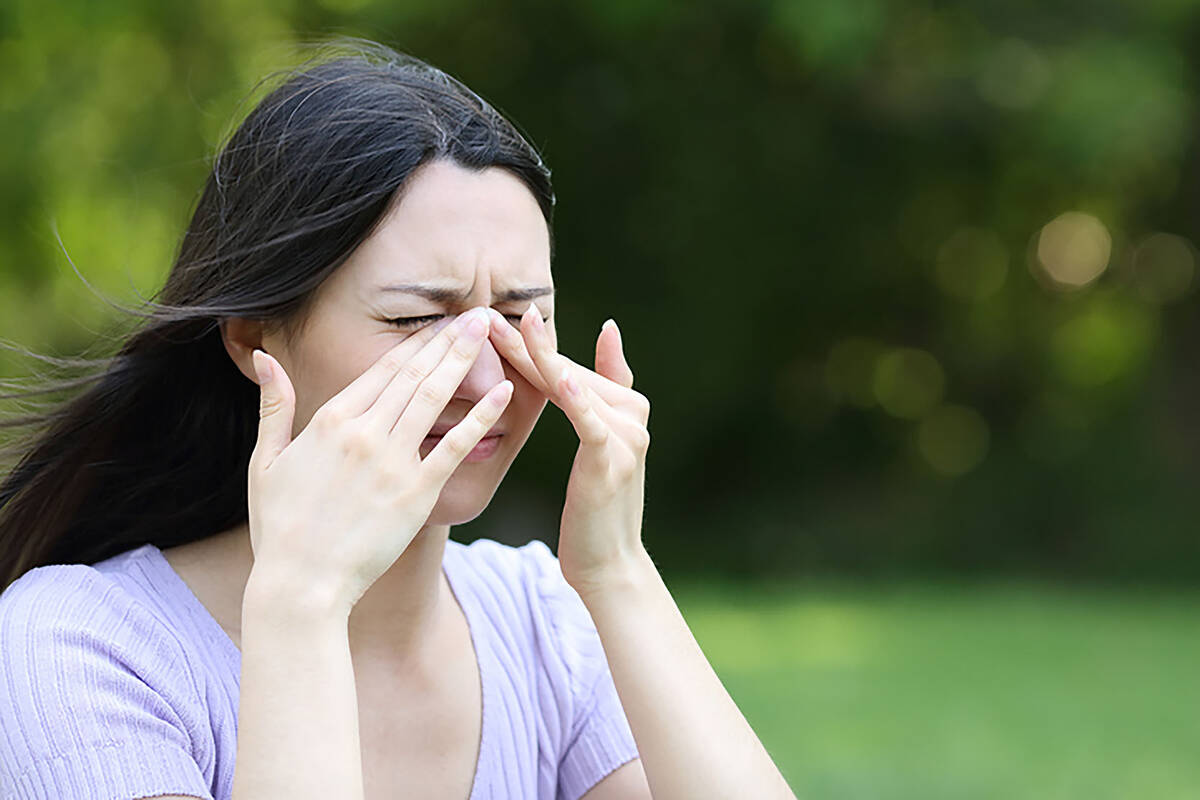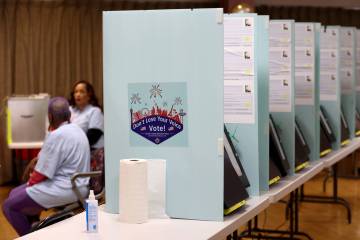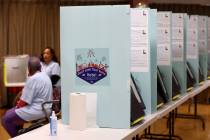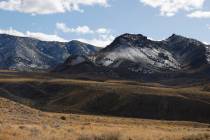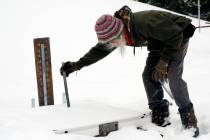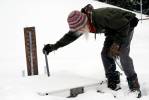Need a reason to welcome triple-digit temperatures? Here’s one.
Need a reason to welcome triple-digit temperatures?
Scorching temperatures herald the end of the spring allergy season, when pollen counts soar and nasal conjunction and eye itchiness get the better of many Southern Nevadans.
The spring allergy season here extends from roughly Valentine’s Day until the Fourth of July, said allergist Dr. Sean McKnight. It gears up in February, intensifies in March and stays strong through June.
This means that sufferers in Nevada probably will see six more weeks this season, he said.
The usual suspects are currently tree and grass pollens, with outlier ragweed packing an unseasonable punch.
“Ragweed is expected to be more prevalent during fall, though there have been some exceptionally large spring releases,” said Asma Tahir, supervisor of the pollen program at UNLV’s School of Public Health.
Weed pollen spreads faster when it rains, Tahir wrote in an email.
“Ragweed pollen is very light, making it easy for the wind to carry it for miles, “ she said.
It’s not unusual for one pollen or another to be more prevalent than normal, as is the case now with ragweed, said Dr. Rick Vinuya, allergy chief for Optum Care Nevada, who is skeptical of anecdotal evidence that this has been a worse allergy season than is typical.
It’s a complaint, he said, that he hears every spring from someone, depending on what a person is allergic to and their level of exposure.
What is more certain is that as the mercury rises, pollen counts will drop.
“Once we’re in triple digits for a couple of weeks, our pollen count is typically very, very low,” McKnight said.
Seasonal allergy sufferers then will get a reprieve until about mid-August, when weed and grass pollens are released until roughly Thanksgiving.
In very high or very low temperatures, plants generally don’t release significant pollen.
What do do
People with allergy symptoms – congestion, sneezing, itchy eyes and runny nose – may want to try an over-the-counter antihistamine. If there’s not dramatic improvement after a month, McKnight recommends speaking with one’s primary care doctor.
If symptoms are persistent, allergists can perform skin tests to determine what a person is allergic to. Allergies can be treated with immunotherapy, a long-term therapy where diluted amounts of an allergen are injected, progressively increasing in concentration, to change the immune system’s response.
When symptoms aren’t from allergies
In some instances, over-the-counter antihistamines won’t work against allergy-like symptoms because the individuals don’t actually have allergies, Vinuya said. Instead, they may have vasomotor rhinitis, where they are reacting to the dryness of weather, wind, dust and other irritants, not allergens.
Since it takes time to develop an allergy, newcomers to Southern Nevada who immediately have allergy-like symptoms are likely reacting to irritants and not allergens, he said.
If changes in weather trigger symptoms, vasomotor rhinitis may be the culprit, he said.
“Nobody is allergic to weather,” he said.
What may help, he said, are anti-inflammatory nose sprays.
Contact Mary Hynes at mhynes@reviewjournal.com or 702-383-0336. Follow @MaryHynes1 on Twitter.



